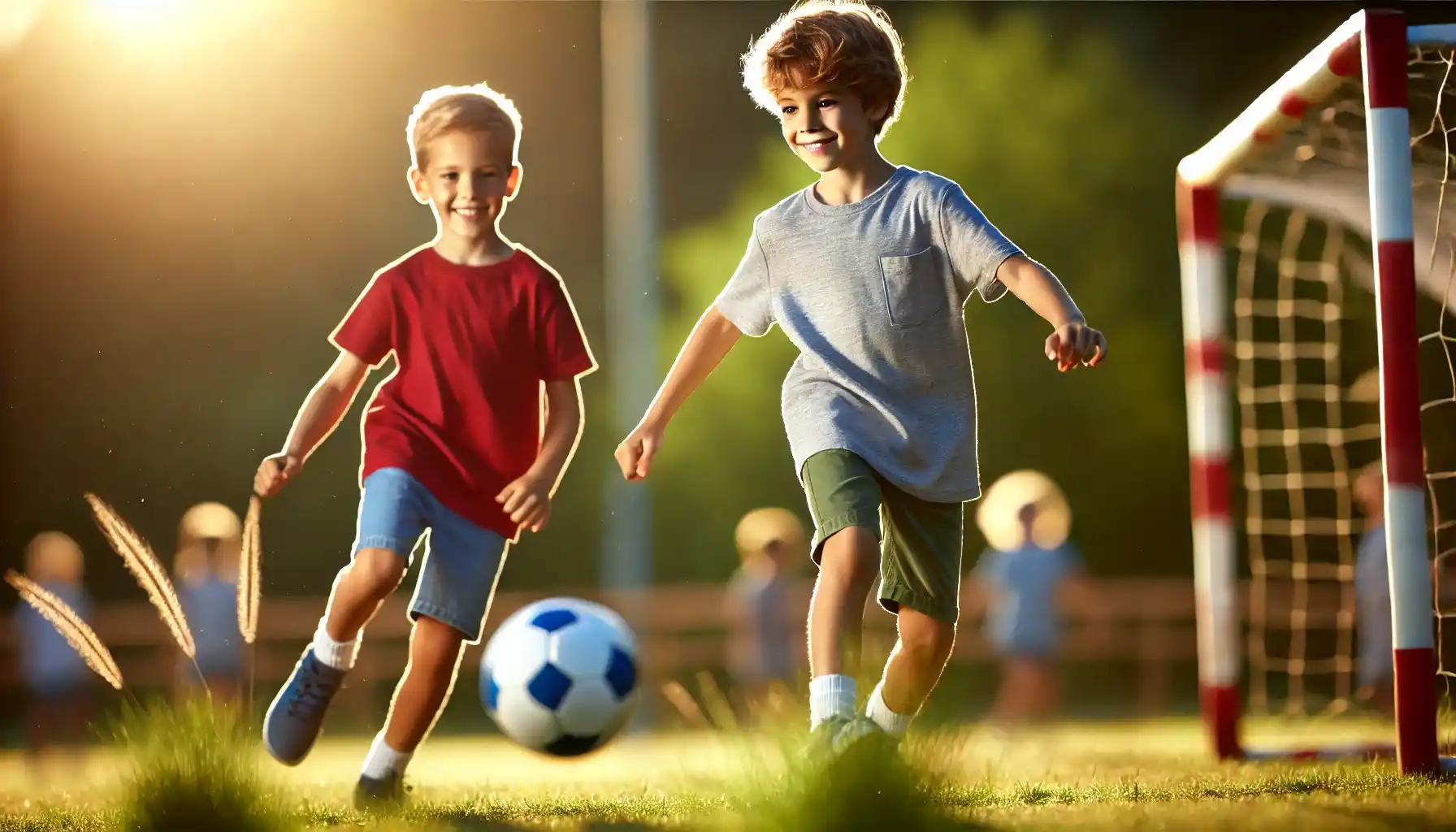Many people think of sports camp for kids as an extra activity, just “to keep the child from getting bored in the summer”. But in fact, it is quite a useful and interesting intensive activity, which builds stamina, discipline, friendship and motivation for the whole school year. But for parents, it’s also a bit stressful: how to pack everything, not to forget anything and to be sure that everything is fine, even if you are hundreds of kilometers away?
Just like when we want to track phone with number to know where our loved ones are – camping requires similarly “tracking” all the charges, being attentive and having a systematic attitude, as for you it is always important to know where your child is? Do they have everything with him? Did they forget their allergy pills? Is everything working out?
So today we’re going to talk about preparing for summer sports camp: how to choose the right shift, what medical documents to prepare, what to pack, how to set up safe and unobtrusive communication and how to help your child adapt. Here you will find useful tips to make the camping experience worry-free and make sure you do everything possible right.
How to Choose the Right Camp
Not all sports camps are created equal. While one may focus on high-intensity training and competition, another might prioritize wellness, movement games, and teamwork. And here choosing the right one depends on your child’s age, fitness level, sports interests, and traits of character.
Younger children may be interested in multi-sport camps that include a mix of games, while teens with athletic ambitions might prefer a specialized tennis, football, or swimming camp with structured drills and experienced coaches. So, first of all you should talk to your child: what excites them? What sports do they want to try or improve? And once you discussed the desires and expectations of your child, you may refer to the tips below to choose the best possible option for them:
- Read online reviews from other parents.
- Check if the camp shares daily schedules or highlight reels on Instagram or Facebook.
- Reach out to past participants or coaches if possible.
While choosing you may create a comparison table with basic parameters to make a more informed decision:
| Camp Name | Focus Sport(s) | Duration | Price | Extras (excursions, language, etc.) |
| SportCamp X, Tuscany | Football, Swimming | 2 weeks | €890 | English-language immersion |
| ActiveTrack Pro, Calabria | Tennis | 10 days | €750 | Includes mental coaching |
Due to this visual tool you can easily align your child’s interest with logistics and budget, avoiding last-minute mismatches.

What to Pack (and What Not to)
Packing for a summer sports camp is like gearing up for a mini expedition. The goal isn’t to send your child with everything they own, but to ensure they have the right essentials – items that support their training, hygiene, comfort, and independence.
Start here with functional sportswear: lightweight, breathable fabrics that are easy to wash and quick to dry. Label everything, from T-shirts to socks. Laundry services may not be frequent, so quantity matters. Consider including at least two pairs of sport-specific shoes (in case one pair gets soaked), a hat, and a refillable water bottle.
Then, focus on personal care: toiletries, sunscreen (a must), insect repellent, small towels, and a personal hygiene kit. Add a compact laundry bag to help keep dirty and clean items separate.
What to leave at home?
At the same time, along with the things you have packed, you need to leave some things at home. And these things include expensive gadgets (tablets and high-end phones are unnecessary and easily lost); perfumes and beauty products (trust us, your child doesn’t need strong scents, especially in shared sleeping areas); extra snacks (unless approved by camp staff, food can attract insects and disrupt nutritional plans).
To simplify prep, here’s a sample packing table:
| Category | Items to Include |
| Clothing | 7 T-shirts, 5 shorts, 2 hoodies, 10 socks |
| Sports Gear | Training shoes, swimsuit, goggles, shin guards |
| Personal Care | Toothbrush, toothpaste, shampoo, sunscreen |
| Documents | Health sheet, camp ID, emergency contacts |
| Extras | Flashlight, notebook, book, reusable bottle |
Tip: Let your child pack with you, so that they will know what is in their bag and where it is – a small step that builds independence and reduces frantic “Mom, where’s my towel?” calls from camp.
Safety and Communication
Now let’s talk about every parent’s top concern: safety and staying in touch. Many camps wisely limit phone usage during the day to encourage focus and social connection among kids. This can leave parents feeling cut off, especially if their child isn’t used to long periods of radio silence.
This is where technology can work for you. For example, app like Number Tracker offers a simple solution: while your child is at training or on an excursion and may not answer calls, you can discreetly track their location using the app. And due to the app you may stay informed without interfering. It’s peace of mind that respects your child’s autonomy.
So, another smart trick is to set up safe places before camp starts. That way, you’ll receive a notification when your child arrives at or leaves designated locations like the sports facility or the dining hall – without constant texting.
Remember, the goal here is not to monitor every step, but to stay connected with trust. If communication is scheduled – say, one call every two days – it teaches responsibility and gives both sides something to look forward to.
And if you want an extra layer of reassurance, discuss camp safety protocols with staff in advance: who handles medical emergencies, what is the coach-to-child ratio, are there lifeguards on duty during pool hours? Because when safety systems are in place, both parents and kids can focus on the most important part: enjoying the experience.
Emotional Readiness and Adaptation
For many children – especially those attending camp for the first time – this isn’t just about sports drills or new routines. It is a significant step toward independence. For parents, it’s equally emotional, as it is also a test of preparation, communication, and trust. While packing the right sneakers matters, emotional readiness is often what shapes the entire experience.
In the days leading up to departure, kids may feel excitement, nervousness, and uncertainty. To ease that emotional carousel, start camp conversations early. Talk openly about:
- What a typical day might look like (from morning warm-ups to lights out)
- How to make new friends and include others in games or activities
- What to do if they feel homesick or unsure—normalizing such feelings helps reduce anxiety
Lifehack: Tuck a hand-written letter or two into your child’s suitcase. These can be opened during tougher moments. Due to these little pieces of home you may offer your child comfort when phone calls might not be possible. You can also agree on a light communication plan – like a call or voice note every other evening (if permitted by the camp).
Camp is an incredible place for developing social courage. So, encourage your child to step out of their comfort zone and say “yes” to new experiences. Many children return from camp with lifelong friendships, built through shared challenges, teamwork, and even late-night laughs in sleeping bags.
To deepen the feeling of ownership and confidence, involve your child in the preparation process. For example, let them pick a favorite t-shirt or water bottle for the trip; ask them to help you label their gear or pack their backpack; discuss what they’re most excited or nervous about.
Even small choices make a big psychological difference. When children feel involved and prepared, they are more likely to embrace the experience – and thrive.

Changing Fear to Confidence
Summer sports camp is more than just practicing and living in a tent. It is a small adult life in a safe environment, where every day gives a child a new opportunity to become braver, more independent and self-confident. And for parents it’s a chance to see that they have raised not only a young athlete, but also a person who is ready to learn and win. Prepare in advance and let the shift become not a reason for excitement, but the beginning of a personal marathon of achievements.
